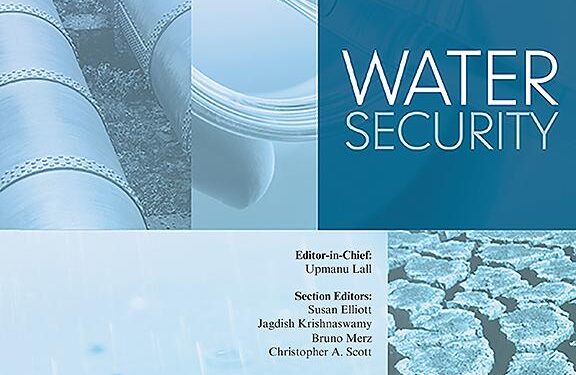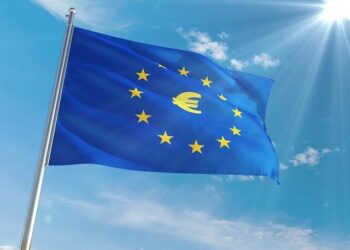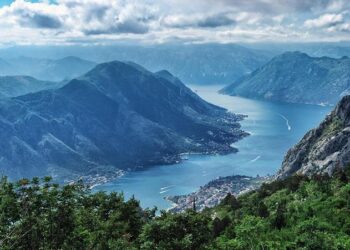The European Union has unveiled a comprehensive new strategy aimed at securing water availability and enhancing quality across its member states, the European External Action Service (EEAS) announced today. In response to growing challenges such as climate change, pollution, and population growth, the plan sets out ambitious measures to safeguard water resources and ensure safe, sustainable access for all citizens. This initiative marks a significant step in the EU’s ongoing efforts to address environmental sustainability and public health concerns in an increasingly water-stressed continent.
EU Launches Comprehensive Strategy to Strengthen Water Security Across Member States
In a decisive move to address growing concerns over water scarcity and contamination, the European Union has unveiled a multi-faceted plan aimed at fortifying water security across its 27 member states. This initiative integrates innovative technologies, updated regulatory frameworks, and enhanced cross-border cooperation to ensure sustainable access to clean water for all Europeans. Central to the strategy is the promotion of water recycling, improved infrastructure investments, and a stringent monitoring system designed to detect pollution at its earliest stages.
Key components of the strategy include:
- Advanced water management systems leveraging AI and IoT to optimize usage and reduce waste.
- Harmonized water quality standards to bridge gaps between member states and protect vulnerable ecosystems.
- Financial incentives allocated to both urban and rural areas for sustainable water projects.
- Public awareness campaigns emphasizing water conservation and pollution prevention.
| Focus Area | Expected Impact | Timeline |
|---|---|---|
| Infrastructure Modernization | Reduce water loss by 30% | 2024 – 2028 |
| Cross-Border Collaboration | Unified water standards | 2024 – 2026 |
| Technology Integration | Real-time pollution monitoring | 2025 – 2027 |
| Community Engagement | Increased conservation efforts | Ongoing |
Ensuring Water Quality Through Advanced Monitoring and Sustainable Practices
Through cutting-edge sensor technology and real-time data analytics, the EU is revolutionizing the way water quality is monitored across member states. This initiative leverages IoT-enabled devices to continuously assess crucial parameters such as pH levels, turbidity, and contaminant presence in freshwater sources, ensuring rapid detection and response to potential hazards. By integrating these advanced systems into everyday water management, authorities can now deliver more accurate reporting and more effective interventions, significantly reducing the risk of contamination and preserving vital ecosystems.
Complementing technological advances, the plan emphasizes sustainable water use practices designed to safeguard resources for future generations. Key strategies include:
- Promoting eco-friendly agriculture to minimize chemical runoff
- Encouraging circular water use systems in industry and municipalities
- Supporting green infrastructure projects like wetlands restoration and urban green spaces
| Water Quality Parameter | Target Threshold |
|---|---|
| pH | 6.5 – 8.5 |
| Turbidity (NTU) | < 5 |
| Nitrate Levels (mg/L) | < 50 |
By combining these rigorous monitoring standards with a holistic approach to sustainability, the EU’s comprehensive plan aims to secure clean water access for all while fostering resilience against climate-related stresses.
Recommendations Focus on Cross-Border Cooperation and Infrastructure Investment for Long-Term Resilience
To tackle the multifaceted challenges of water security across the European Union, the plan highlights the necessity of enhanced collaboration between member states sharing water basins. Strengthening cross-border cooperation will enable more coordinated responses to climate change impacts such as droughts and floods, ensuring equitable access to resources. Key actions include creating joint management bodies, harmonizing data collection systems, and fostering dialogue between local communities and policymakers along transnational watercourses.
Investment in modern infrastructure is equally prioritized to build resilience against future pressures on water quality and availability. The strategy advocates for targeted funding in:
- smart water networks that optimize distribution and reduce losses
- green infrastructure solutions like wetlands restoration to improve natural filtration
- upgrading wastewater treatment facilities to meet higher environmental standards
These targeted measures are expected to safeguard public health and support sustainable economic activities dependent on water resources. The table below summarizes the primary focus areas identified for infrastructure investment:
| Investment Area | Purpose | Expected Benefit |
|---|---|---|
| Smart Water Networks | Optimizing water distribution | Reduced water loss and improved efficiency |
| Green Infrastructure | Natural filtration and flood mitigation | Enhanced ecosystem services |
| Wastewater Facilities | Advanced treatment processes | Cleaner discharge and ecological safety |
In Retrospect
As the European Union moves forward with its comprehensive plan to safeguard water security and quality, stakeholders across the continent are watching closely. With climate change and increasing demand putting pressure on water resources, the initiative by the EEAS represents a critical step toward sustainable management and equitable access for all citizens. Implementation remains key, and the coming months will reveal how effectively member states can collaborate to turn these ambitious goals into tangible outcomes.
















